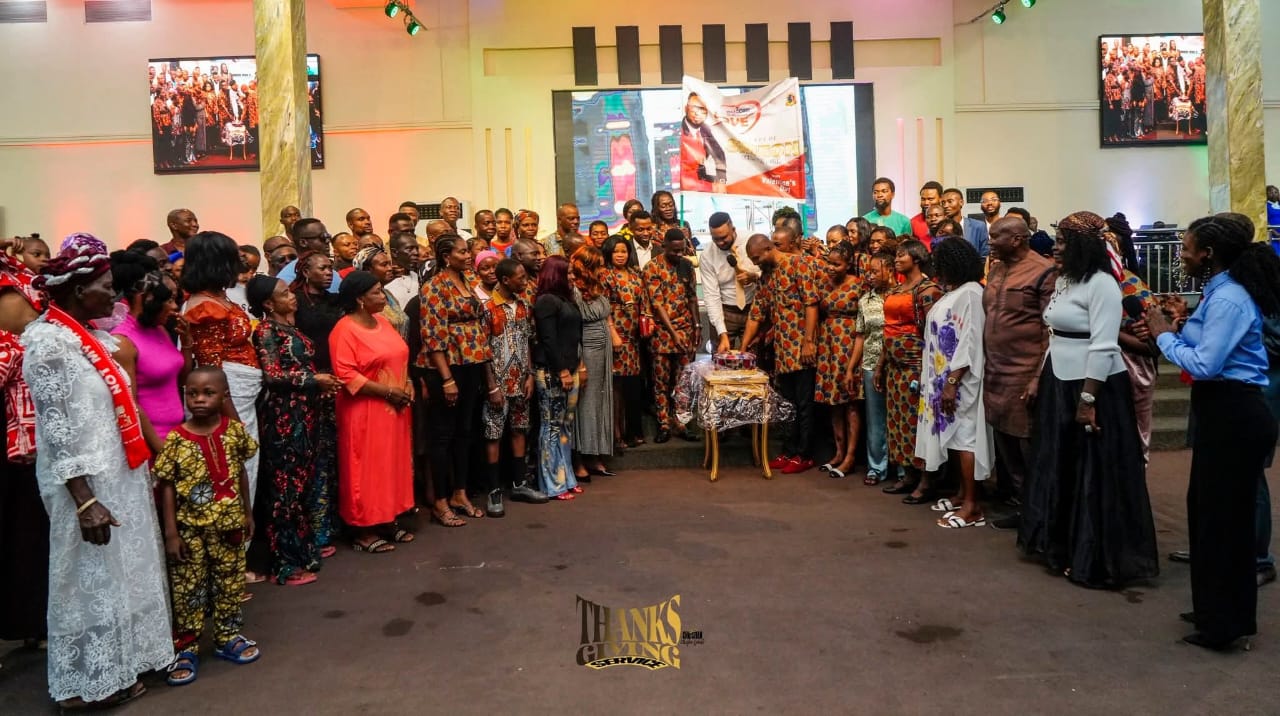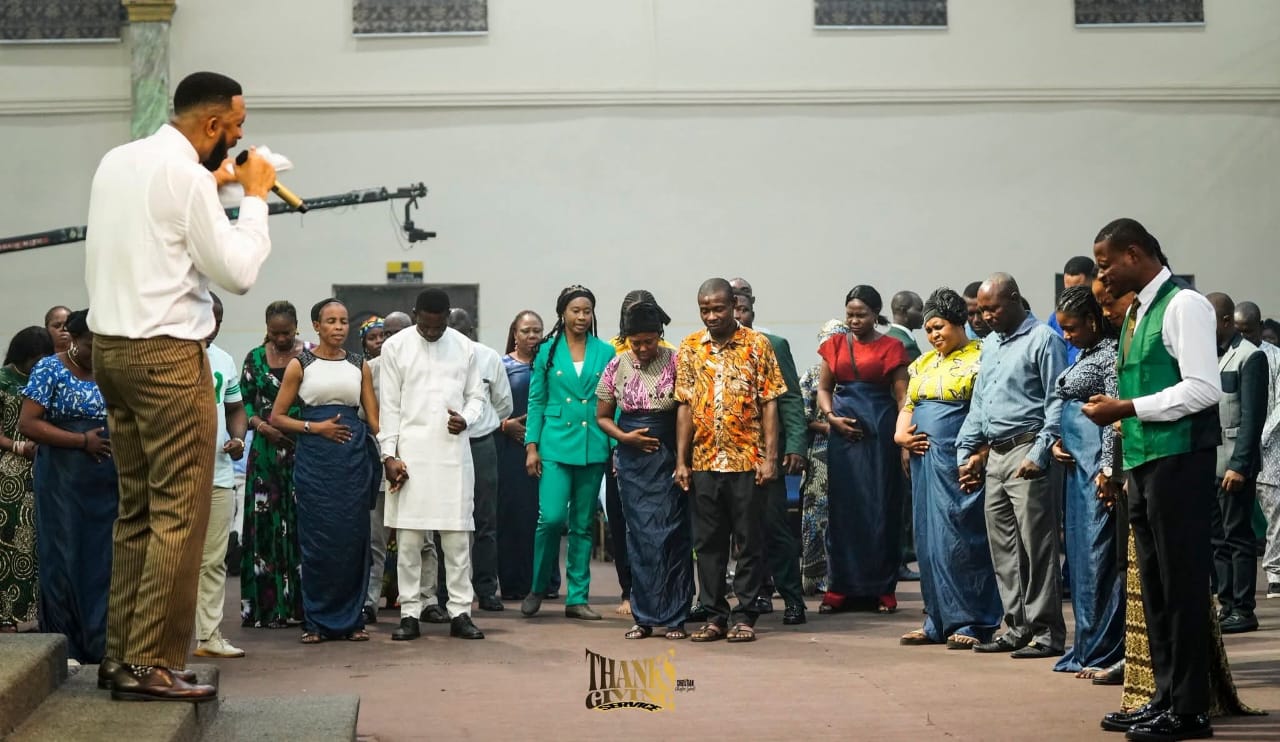society
Appraising Bago’s Template On Agriculture* By Kabir Ahmed Panti

*Appraising Bago’s Template On Agriculture*
By Kabir Ahmed Panti
When you hear people call him “Farmer Governor”, you would be tempted to assume that someone with a heavy Hausa accent is struggling to pronounce “former governor”; but no, His Excellency, Mohammed Umaru Bago, the executive governor of Niger State is known and called the “Farmer Governor”.
The name did not emerge from a career in farming. Bago was a successful banker who worked with several banks in Nigeria and even rose to a managerial position at First City Monument Bank before venturing into politics. He’s also not the son of a farmer. His father, Alhaji Mohammed Mustapha (Baraden Nupe), a Prince from the Bida Royal Family was a successful businessman. His mother, Late Hajia Hadijat Mohammed is of the Lapai Royal Family, so blue blood of royalty runs through his veins and he was at no point a commercial or subsistence farmer.
Governor Bago got the name from his commitment to agriculture as a tool for eradicating poverty after he took over the mantle of leadership as the number one citizen of the State. He did not drop his elitism. He’s only uplifting farming to an elitist status and giving those in the business a great sense of belonging and job satisfaction.
On assumption of office as the governor of Niger State on May 29, 2023, Governor Bago identified agriculture as the comparative advantage that can give Niger State an edge over other states. Niger boasts of about 10% of the nation’s arable land mass – the largest by any single State in the country. The governor believed commercial farming is the special purpose vehicle that will transform the economic outlook of Niger, create employment opportunities, rake in internally generated revenue, move its people out of poverty and put an end to food insecurity in the State.
With such fertile land in large quantities for crop cultivation and bodies of water for both pastoral and aquaculture, the Farmer Governor set out to maximise the opportunities inherent in these God’s gifts to the State. For someone who spent 12 uninterrupted years in the hallowed chamber of the National Assembly representing his people between 2011 and 2023 before he emerged as governor, Dr Bago was neither a stranger to the politics of Niger State nor the challenges and opportunities in the State that host the popular River Niger where the nation Nigeria derived her name.
The Bago revolution in Niger is beyond agriculture though. Education, healthcare, road infrastructure and many other sectors are getting the needed attention to complement the strides in the agricultural sector after several years of neglect and stagnation.
In less than one year in office, Governor Bago has created an identity for himself beyond sloganeering. His focus and determination to make a difference is contagious. After just six months, Governor Bago brought the President and Commander In Chief, His Excellency, President Bola Ahmed to his State to commission some of the signature projects executed by him within a very short time. Projects that have a direct bearing not just on the lives of the people of his State but that of other Nigerians in different parts of the country who frequent Niger for their staple food supplies.
At the Leadership Newspaper Annual Award Dinner where Governor Bago was on the stage as a recipient of the “Best Governor of the Year Award” the Farmer Governor touched the nerves of the political class when he said he wondered why a nation like Nigeria with rich and fertile land for farming is celebrating the donation of grains to her by a war-torn country like Ukraine. He challenged the federal government who at the time, was gloating over their plan to distribute 42,000 metric tons of grain from the Strategic Grains Reserve by promising to deliver at least 100,000 metric tons of grain by June 2025.
Talk is cheap and many would not take the pronouncement of an average Nigerian politician for a pinch of salt but Governor Bago is a different breed. He has a well-mapped-out strategy to achieve his goals and the foundation is the plan to cultivate about one million hectares of land. This will include a hundred thousand hectares with full irrigation facilities ready for all-season farming as he intends to outsmart nature during the dry season and keep his people busy all year long.
Already, about 500 industrial tractors, 2000 power tillers for small-scale farmers, 2000 petrol-powered water pumping machines, 3000 solar pumps and over 5000 tube wells have been purchased by the State government to encourage dry season farming. Fertilisers, herbicides and pesticides have also been acquired in large quantities and distributed to the people to improve yield and productivity alongside Rice Millers, Threshers, Hammer Mills, power Tillers and other harvesting implements.
Governor Bago continued to reach out to investors in the agricultural sector both within and outside the country most especially in the area of innovation and technology as he believes the future of agriculture in the State will depend largely on mechanisation. Today, there’s an agreement with John Deere, an American Tractor manufacturing company to supply the State with 1000 tractors in the first instance. 300 of those tractors have been delivered to the State. It is the largest consignment of tractors ever received by any State, the federal government or the private sector in the history of Nigeria and more are on the way.
A State-owned private company has been established to manage these tractors, make them available to farmers at affordable rates and eliminate the bureaucratic bottlenecks that could discourage potential farmers. Bago’s government has deployed over 100 bulldozers to the bush to clear the fields. The government is doing that free of charge as a start-off cost waiver for farmers in the State. Apart from the agricultural benefits of this particular bush-clearing exercise, the security implications are enormous as Governor Bago believes that if there are no bushes, there will be nowhere for bandits to hide before coming out to the towns to carry out their heinous crimes against humanity at will.
In Governor Bago’s first month in office, he launched the “Green Economy Initiative”. Today, he has established an agency in charge of the green economy and they are planting trees on every fallow land. Nurseries have been established in 25 different Local Government Areas to nurse trees for transplanting.
The Bola Ahmed Tinubu International Airport Minna is an airport with cargo bias, dedicated to exporting fresh fruits, food and meat out of Niger to the outside world. The long-abandoned and dilapidated Shiroro Hotel is currently undergoing a turnaround of fortunes but it’s not going to come out as a hotel anymore. It will now serve as the College of Medicine and Teaching Hospital for the Ibrahim Badamasi Babangida University, the State-owned University. That’s how pragmatic Governor Bago has been.
He is investing in tertiary healthcare services for the overall health and well-being of the State. General Hospitals and Primary Healthcare Centres are undergoing facelifts and drugs and equipments and being supplied to make the live up to their expectations.
Driving into Minna the State Capital, you’re greeted by a refurbished and new-looking City Gate. The rehabilitation and expansion of the Chanchaga Road into multiple lanes is a beauty to behold. From all indications, Governor Bago is ready to sustain the momentum and the people of Niger State are in for the best time of their lives.
Panti wrote this piece from FUT Minna, Bosso Niger State.
society
Wisdom of a Mature Believer: Don’t Judge What You Don’t Know — Dr. Chris Okafor

Wisdom of a Mature Believer: Don’t Judge What You Don’t Know — Dr. Chris Okafor
“To provoke mercy, keep sowing mercy.”
Mercy is often defined as compassion shown to someone who deserves punishment. It is the conscious decision to forgive when one has the power to condemn.
This formed the core of the message delivered by the Generational Prophet of God, Christopher Okafor, during the Grace Nation Glorious Sunday Service held at the international headquarters of Grace Nation Worldwide in Ojodu Berger, Lagos, Nigeria.
The Act and Power of Mercy
Preaching on the topic “The Act and Power of Mercy,”
Dr. Okafor emphasized that mercy is the believer’s escape from judgment. Referencing Psalm 136:1–20, he explained that mercy does not appear randomly; it is activated by deliberate spiritual actions and attitudes.
According to him, many people forfeit divine privileges because they are quick to judge.
A mature believer, he warned, must resist rushing to conclusions. In some cases, what appears to be clear evidence may not reflect the full truth.
“Don’t judge what you do not fully understand,” he cautioned, stressing that premature judgment can shut the door to mercy.
What Provokes Mercy?
Dr. Okafor outlined key spiritual principles that activate divine mercy:
Prayer
Prayer in deep and sincere dimensions attracts mercy. At the throne of grace, God considers the petitions of those who remain committed to Him. Even when a believer falls short, consistent prayer and kingdom partnership can move God to show mercy.
Total Repentance
Acknowledging wrongdoing and genuinely turning away from it provokes mercy. When a person presents their case before God with sincere repentance, divine compassion is released.
Sowing Mercy
Mercy operates like a seed. What a person sows is what they reap. Showing compassion, forgiveness, and kindness to others creates a harvest of mercy in return.
Unjust Hatred
Dr. Okafor also noted that when individuals are hated without cause, God may respond with mercy and divine elevation. What others fail to see in a person, God recognizes.
Conclusion
In closing, the Generational Prophet reiterated that mercy is both a principle and a harvest.
“To provoke mercy,” he declared, “keep sowing mercy.”
The service was marked by strong prophetic manifestations, including testimonies of deliverance, miracles, healings, restoration, and solutions to diverse challenges presented before God.
The Glorious Sunday Service concluded with a special thanksgiving celebration by members born in the month of February.
Sunday Adeyemi writes from Lagos
society
NOVO Announces Spring 2026 Launch: The World’s First Diamond-Backed Digital Currency and Wealth Platform Devoted to Feeding Africa

NOVO Announces Spring 2026 Launch: The World’s First Diamond-Backed Digital Currency and Wealth Platform Devoted to Feeding Africa
February 2026 — NOVO, an emerging global leader in diamond manufacturing, crypto‑banking, and ethical wealth management, today announced the upcoming Spring 2026 launch of NOVO Coin, the world’s first digital currency fully backed by certified, lab‑grown, cut, and polished diamonds stored in secure vaults in Singapore and Switzerland.
Designed for stability, transparency, and humanitarian impact, NOVO represents a new class of asset‑backed digital currency engineered to serve both global markets and vulnerable economies facing inflation, currency instability, and limited access to banking.
A Currency With a Mission: Feeding a Continent.
In a groundbreaking commitment, NOVO has pledged 50% of all corporate profits to support nonprofit micro‑finance organizations across Africa that specialize in food production, farming, fishing, and sustainable agriculture.
This initiative aims to:
Expand access to affordable capital for small and mid‑scale food producers
Strengthen local food systems and reduce dependency on imports
Dramatically lower grocery prices across African markets
Build long‑term economic resilience for millions of families
NOVO’s leadership believes that empowering Africa’s farmers and food‑producing cooperatives is the fastest path to stabilizing regional economies — and ultimately driving down global food prices.
Diamond‑Backed Stability for a Volatile World
Unlike speculative tokens or inflation‑prone fiat currencies, every NOVO Coin is backed by real, verifiable diamond reserves, manufactured through advanced laboratory processes and held in audited international vaults.
This structure provides:
Intrinsic value tied to a globally recognized commodity
Transparency through third‑party reserve verification
Security via geographically diversified vaults
Long‑term price stability for users and institutional partners
NOVO’s diamond‑reserve system is designed to offer a safe, durable alternative for nations and communities seeking protection from currency devaluation.
A Full‑Spectrum Financial Ecosystem
Beyond the currency itself, NOVO is launching a vertically integrated platform that includes:
Diamond manufacturing and certification
Crypto‑banking and digital asset management
Wealth management and life‑insurance services
Humanitarian micro‑finance distribution channels
This unified ecosystem positions NOVO as one of the first fintech institutions to combine commodity‑backed digital currency with large‑scale social impact.
A New Era of Ethical Finance
“NOVO was built on a simple belief: a currency should serve the people who use it,” said the organization’s founder. “By backing NOVO with diamonds and dedicating half of our profits to African food producers, we are proving that financial innovation and humanitarian responsibility can — and must — coexist.”
Spring 2026: A Global Debut
NOVO Coin will be available to the public in Spring 2026, with early institutional partnerships already underway across Africa, Asia, and the Caribbean.
For more information. Here is the organizations website TOPOFTHEPYRAMID.org
society
Tinubu Mourns Rear Admiral Musa Katagum: A National Loss for Nigeria’s Military Leadership

Tinubu Mourns Rear Admiral Musa Katagum: A National Loss for Nigeria’s Military Leadership
By George Omagbemi Sylvester | Published by SaharaWeeklyNG
“President Tinubu Pays Tribute as Nigeria’s Naval Command Mourns the Sudden Loss of a Strategic Maritime Leader at a Critical Security Juncture.”
Abuja, Nigeria – President Bola Ahmed Tinubu has officially mourned the death of Rear Admiral Musa Bello Katagum, the Chief of Naval Operations of the Nigerian Navy, who died on February 19, 2026, after a protracted illness while receiving treatment abroad. His passing has sent ripples through Nigeria’s defence establishment and national security architecture, marking the loss of one of the most experienced and respected maritime commanders in recent memory.
In a statement released on February 20, 2026 by his Special Adviser on Information and Strategy, Bayo Onanuga, President Tinubu described Rear Admiral Katagum’s death as a “significant blow to the military and the nation,” noting the late officer’s vast experience and “invaluable contributions” to both the Nigerian Navy and the broader “Armed Forces of Nigeria”. The President extended heartfelt condolences to the bereaved family, naval personnel and the nation at large, while praying for solace and strength for colleagues and loved ones.
Rear Admiral Katagum’s career was marked by distinguished service in several strategic capacities. Before his appointment as Chief of Naval Operations in November 2025, he served as Director of the Presidential Communication, Command and Control Centre (PC4) and Chief of Intelligence of the Nigerian Navy-roles that placed him at the nexus of naval operational planning and intelligence gathering. His leadership was widely credited with enhancing the Navy’s capacity to respond to growing maritime threats in the Gulf of Guinea, including piracy, illegal bunkering, and transnational crime.
Security policy experts emphasise that Katagum’s loss comes at a critical juncture for Nigeria. Dr. Adebola Akinpelu, a defence analyst at the Institute for Security Studies, observes that “Nigeria’s maritime domain remains a frontline in the broader security challenges facing the nation; the loss of an adept operational leader like Rear Admiral Katagum is not just a personnel change but a strategic setback.” His insight reflects broader concerns about continuity in military leadership amid intensifying threats.
The Nigerian Navy’s own statement, confirmed by the Directorate of Naval Information, affirmed that Katagum’s “exemplary leadership, strategic insight, and unwavering loyalty” were central to boosting operational readiness and national defence. According to Captain Abiodun Folorunsho, the Director of Naval Information, “His legacy remains a source of inspiration across the services.”
As Nigeria grapples with complex security landscapes at its land and maritime frontiers, the death of Rear Admiral Katagum underscores a broader national imperative: strengthening institutional capacities while honouring the service and sacrifice of those who defend the nation’s sovereignty. In the words of military scholar Professor James Okoye, “Leadership in security institutions is not easily replaceable; it is built through experience, trust and strategic clarity; qualities that Katagum embodied.”
Rear Admiral Musa Katagum has since been laid to rest in accordance with Islamic rites, leaving behind a legacy that will inform Nigerian naval operations for years to come.
-

 celebrity radar - gossips6 months ago
celebrity radar - gossips6 months agoWhy Babangida’s Hilltop Home Became Nigeria’s Political “Mecca”
-

 society6 months ago
society6 months agoPower is a Loan, Not a Possession: The Sacred Duty of Planting People
-

 society5 months ago
society5 months agoReligion: Africa’s Oldest Weapon of Enslavement and the Forgotten Truth
-

 news6 months ago
news6 months agoTHE APPOINTMENT OF WASIU AYINDE BY THE FEDERAL GOVERNMENT AS AN AMBASSADOR SOUNDS EMBARRASSING












